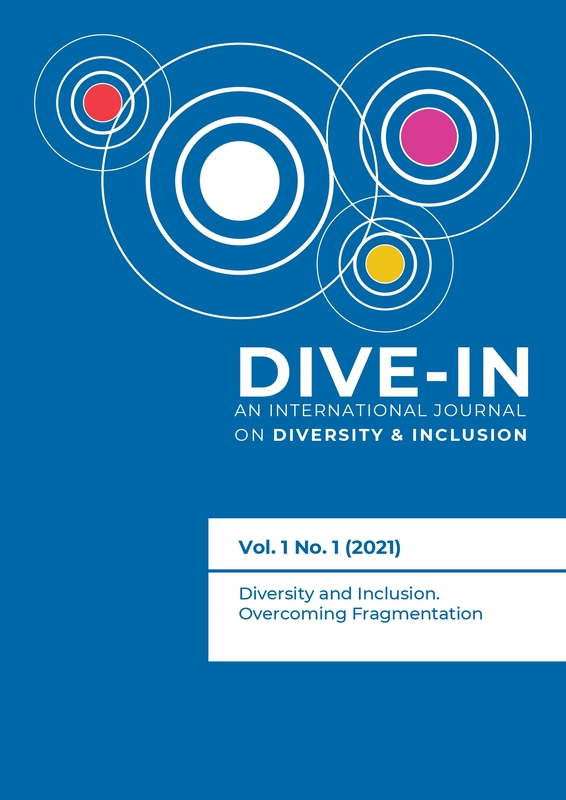Language reform, social imaginaries, interlocutor reference
DOI:
https://doi.org/10.6092/issn.2785-3233/13892Keywords:
interlocutor reference, linguistic anthropology, language reform, Quakers, VietnameseAbstract
Ludwig Wittgenstein wrote that “to imagine a language means to imagine a form of life.” Here I suggest that the inverse is also true: to imagine a form of life involves imagining a language, or at least, a way of speaking. More specifically, I argue that those who imagine an alternative way life very often target the practices of interlocutor reference (reference to speaker and addressee of an utterance) for reform, apparently seeing such practices as in various ways constitutive of their social existence, including their relations with others. I discuss some of the ways in which thinking about language is constrained and shaped by the very character of language itself. I then turn to consider two cases in which advocates for social change sought to bring about a hoped-for future through reform of the practices of interlocutor reference.
References
Agha, Asif. 2007. Language and Social Relations. Cambridge: Cambridge University Press.
Anderson, Benedict. 1983. Imagined Communities: Reflections on the Origin and Spread of Nationalism. London: Verso.
Bauman, Richard. 1983. Let Your Words Be Few: Symbolism of Speaking and Silence among Seventeenth Century Quakers. Cambridge: Cambridge University Press.
Bloch, Maurice. 1975. “Introduction.” In Bloch, Maurice (ed.), Political Language and Oratory in Traditional society, 1-28. London/New York: Academic Press.
Brown, Roger & Gilman, Albert. 1960. “The Pronouns of Power and Solidarity.” In Sebeok, Thomas A. (ed.), Style in Language, 253-76. Cambridge, MA: MIT Press.
Cody, Francis. 2011. “Publics and Politics.” Annual Review of Anthropology 40. 37-52
Fleming, Luke & Sidnell, Jack. 2020. “The Typology and Social Pragmatics of Interlocutor Reference in Southeast Asia.” The Journal of Asian Linguistic Anthropology 2(3). 1-20.
Fox, George. 1831. A Collection of Many Select and Christian Epistles, Letters and Testimonies, Written on Sundry Occasions, by that Ancient, Eminent, Faithful Friend and Minister of Christ Jesus, George Fox. Philadelphia: Marcus T. C. Gould.
Fraser, Nancy. 1990. “Rethinking the public sphere: a contribution to the critique of actually existing democracy.” Social Text 25/26. 56-80.
Gilman, Albert & Brown, Roger. 1958. “Who says tu to whom.” ETC; a Review of General Semantics 15(3). 169-174.
Hacker, Peter M.S. 2015. “Forms of Life.” Nordic Wittgenstein Review, Special Issue. 1-20.
Keane, Webb. 2016. Ethical Life: Its Natural and Social Histories. Princeton: Princeton University Press.
Kockelman, Paul. 2013. Agent, Person, Subject, Self: A Theory of Ontology, Interaction, and Infrastructure. Oxford: Oxford University Press.
Luong, Hy Van. 1988. “Discursive Practices and Power Structure: Person-Referring Forms and Sociopolitical Struggles in Colonial Vietnam.” American Ethnologist 15(2). 239-253.
Luong, Hy Van. 1990. Discursive Practices and Linguistic Meanings: The Vietnamese System of Person Reference. Amsterdam: John Benjamins.
Marr, David. 1981. Vietnamese Tradition on Trial, 1920-1945. Berkeley: University of California Press.
McHale, Shawn. 2004. Print and Power: Confucianism, Communism and Buddhism in the Making of Modern Vietnam. Honolulu: University of Hawaii Press.
Morford, Janet. 1997. “Social Indexicality in French Pronominal Address.” Journal of Linguistic Anthropology 7(1). 3-37.
Phan Khôi. 1930. “Theo thuyết chánh danh, đính chánh lại cách xưng tên của người Việt Nam” (‘The doctrine of correct names, rectifying name usage among the Vietnamese’). Phụ Nữ Tân Văn 58. 11-12 & 59. 9-10.
Phan Khôi. 1930. “Phép làm văn, Bài thứ II: Cách đặt đợi danh từ” (‘Rules of Writing, Article two: Ways of Using Pronouns’). Phụ Nữ Tân Văn 73. 13-14.
Phan Khôi. 1931. “Một cái tục, nếu không bỏ đi thì bất tiện: Tục kiêng tên” (‘A custom which, if not abandoned, becomes inconvenient: The custom of name taboo’). Phụ Nữ Tân Văn 90. 5-8.
Phan Khôi. 1955. Việt Ngữ Nghiên Cứu, ‘Research on Vietnamese Language’. Hà Nội: Nhà Xuất Bản Văn Nghệ (http://www.talawas.org/talaDB/showFile.php?res=3503&rb=08).
Rumsey Alan. 2014. “Language and human sociality.” In Enfield, Nick J. & Kockelman, Paul & Sidnell, Jack (eds.), The Cambridge Handbook of Linguistic Anthropology, 400-422. Cambridge: Cambridge University Press.
Rosaldo, Michelle Z. 1982. “The Things We Do with Words: Ilongot speech acts and speech act theory in philosophy.” Language in Society 11. 203-37.
Sidnell, Jack. 2019. “Vietnamese Interlocutor Reference, Linguistic Diversity and Semiotic Mediation.” Paradigmi: Rivista di critica filosofica 37(3). 467-90.
Silverstein, Michael. 1979. “Language Structure and Linguistic Ideology.” In Clyne, Paul R. & Hanks, William F. & Hofbauer, Carol L. (eds.), The Elements: A Parasession on Linguistic Units and Levels, 193-247. Chicago: Chicago Linguistic Society, University of Chicago.
Silverstein, Michael. 1981. “The Limits of Awareness.” Working Papers in Sociolinguistics 84. Austin, TX: Southwest Educational Development Laboratory.
Silverstein, Michael. 1985. “Language and the Culture of Gender: At the Intersection of Structure, Usage, and Ideology.” In Mertz, Elizabeth & Parmentier, Richard (eds.), Semiotic Mediation: Sociocultural and Psychological Perspectives, 219-259. Orlando, FL: Academic Press.
Silverstein, Michael. 2003. “Indexical Order and the Dialectics of Sociolinguistic Life.” Language & Communication 23. 193-229.
Taylor, Charles. 2002. “Modern Social Imaginaries.” Public Culture 14(1): 91-124.
Vu, Yen N. 2020. “Phạm Quỳnh, borrowed language, and the ambivalences of colonial discourse.” Journal of Southeast Asian Studies 51(1-2). 114-131.
Wittgenstein, Ludwig. 2009 [1953]. Philosophical Investigations: The German Text with an English Translation. G. E. M. Anscombe, P. M. S. Hacker and Joachim Schulte trans. Revised fourth edition by P. M. S. Hacker and Joachim Schulte. Oxford: Wiley-Blackwell.
Downloads
Published
How to Cite
Issue
Section
License
Copyright (c) 2021 Jack Sidnell

This work is licensed under a Creative Commons Attribution 4.0 International License.





